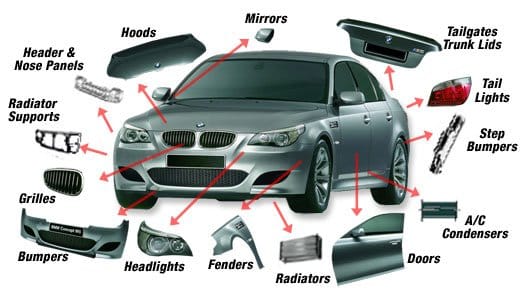Good used auto parts could be handy and cost-effective if you want to get your vehicle repaired or maintained. Whether it is “used car parts for sale near me” or “cheap used engines,” finding the best-used parts requires excellent attention and care. The idea behind this guide is to provide you with some of the most essential tips and strategies so that you may get the best while buying used car parts.
1. Identify Your Needs
Before buying second-hand car parts, knowing precisely what you need is crucial. This includes identifying the part you are looking for and the functions it executes. You will also be required to know details about your vehicle, such as the car model, make, and year of manufacture. The availability of such information will enable you to remain focused on your vehicle’s needs and not buy parts incompatible with your car.
2. Research Reliable Sources
Looking for second-hand car parts on sale in your area requires establishing first where to get them from. Some of the options that follow may prove helpful:
- Salvage Yards are excellent places to find second-hand car parts at extremely pocket-friendly prices. Typically, salvage yards take apart wrecks or non-operational vehicles and vend usable parts.
- Independent Auto Parts Stores: Some stores specialize in used parts, thereby ensuring an added advantage—the capability for personal contact with used parts and the chance to look them over before buying.
- Car Clubs and Forums: Groups of enthusiasts are beneficial places on the Internet to find good quality used parts and help repair the needed parts of a car.
3. Thoroughly Examine the Part
Whether you are buying physically or online, it is vital to examine the part. The following are some of the critical areas you should check:
- Condition: Check for any wear, rust, fractures, and sometimes even breaks or any other destruction on the part.
- Offered compatibility: Make sure the part will fit your vehicle—Cross-check with the vehicle requirements against the part numbers and specs provided.
- Mileage: Especially for components like engines and transmissions, knowing the type of mileage they have endured would give people an idea of their remaining life expectancy. The lower the mileage, the better.
- Warranty: Many sellers selling used parts issue warranties to back up their sales and protect consumers against defective products.
4. Look out for the Cost
Though used parts are generally cheaper, they can still vary in price. Here’s how you can ensure you get a decent deal:
- Compare the pricing: Check their prices from different sources to get a feel for the average. If one is low compared to others, that might be a red flag for poor quality.
- Negotiate: Never be ashamed to negotiate, especially from a salvage yard or private seller. You can always get an even better deal.
- Hidden Costs: Check for any other cost associated with it, which involves delivery or installation charges if you buy it online.
5. Obtain Documents
Now, when you buy big-ticket components like an engine or transmission system, ask for documents which may help you get more information about the life history of an element:
- History of the Vehicle: Avail information regarding the vehicle from which the component was salvaged. In this, you can look for information regarding accidents in the past and also the reason for dismantling.
- Maintenance Records: If any maintenance records are available, they will show how well the part was taken.
6. Check the Seller’s History
While buying used car parts, trustworthy sellers are a blessing. Ensure the seller is reputable through good client reviews or any other positive history. Ordering online is critical because you can only view the part personally after buying it.
7. Test the Part
Test the part—if possible—before you buy it. This may be just checking if the lights or other electrical components come on. Still, for something more extensive like an engine or transmission, you will want somebody professional to look at it and see its condition.
8. Consider Seeking Professional Help
If you need more clarification about assessing the condition and compatibility of used parts, consider getting help from a professional mechanic. They will be able to provide precious expertise and ensure you are making a wise purchase.
9. Understand Return Policies
Before finally paying for your purchase, understand the return or refund policy with the seller. If the part turns out wrong or does not fit a versatile return policy can help you save yourself from a lousy investment.
10. Keep Yourself Informed
The used car parts market is a dynamic one. New sources and options are many and often found. Keeping yourself abreast of the trends, new sellers, and prices in the market enables you to make the right decisions.
Conclusion
Picking the best-used car parts calls for research, scrutiny, and a fraction of savvy shopping. With these tips, you will surely get reliable, high-grade parts at the best price for your needs and budget. From finding “used car parts on sale near me” to “cheap used engines,” keeping alert and well-informed will keep you making the right decisions to have that car going down the road for years.

